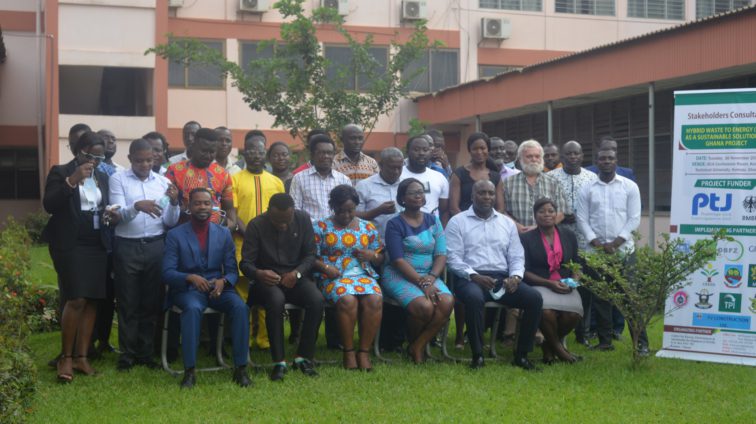
Audio By Carbonatix
The sanitation situation in Ghana is set to improve as a waste-to-energy project is being piloted at Gyankobaa in the Atwima-Nwiabiagya South district of the Ashanti Region.
The project, which will take 48 months to complete is expected to generate 400 KW of electricity from municipal waste. This will be scaled up to other parts of the country.
The German Government, through its Federal Ministry of Education and Research, signed a 5.8 million euro contract involving 4 institutions in Germany and 1 from Ghana.
These comprise 3 academic institutions, one research and development institution and a medium-scale industry.
The project’s overall aim is to develop concepts for waste segregation and the conversion of various fractions into energy by using biogas, pyrolysis and solar PV plants.
The project will also create business models to successfully replicate and propagate the models in 10 different regions in Ghana.
It will also build local experts to design, construct and maintain hybrid waste to energy facilities.
At a stakeholder consultation meeting at the Kumasi Technical University, the Project Coordinator and Head of the Renewable Energy Centre at the KsTU, Dr. Julius Ahiekpor said the project will begin full operation by the middle of 2022.
“We want to produce energy and train people to manage such projects in the future. It’s a pilot that has a research component,” he summarized.
How the project started
Germany's Federal Ministry of Education and Research (BMBF) of Germany in collaboration with Ghana’s Ministry of Environment, Science, Technology and Innovation, through the West African Science Service Centre in Climate Change and Adapted Land Use in Accra conducted feasibility studies on renewable energy resources in Ghana.
This was under the supervision of the Council for Scientific and Industrial Research.
Two scoping studies were commissioned around the same time by BMBF to examine the Bioenergy production and utilization in Ghana (BioGRAG) project and the possibility of producing bioenergy from cocoa husk through the Energize Ghana by Cocoa Husk (ENGHACOH) project coordinated by the University of Rostock and SRH-Berlin respectively.
The three individual studies and scoping reports crystallized into one project with the common objective of finding an appropriate treatment pathway for municipal solid waste generated in Ghana.
Latest Stories
-
Margaret Korme Tetteh
37 minutes -
Sammy Gyamfi’s work at Goldbod in few months would take someone five years – Ato Forson
53 minutes -
From Accra to Wuzhen: The Ghanaian schoolgirls making their mark in global AI
54 minutes -
Ghana must prioritise value addition to sustain IMF gains – Prof Asuming
1 hour -
Man allegedly poisons his incoming girlfriend over GH₵100 at Buduburam
1 hour -
Jennifer Frimpong: Ghana’s health system faces funding shock, urgent reforms needed
1 hour -
Tighter cocoa supply lifts prices as Ghana records good crop conditions
2 hours -
KAAF University donates to Widows, urges Public to end Discrimination against Elderly Widows
2 hours -
NAIMOS task force disrupts illegal mining operations along Ankobra River
2 hours -
President’s New Year message lacked hope and sincerity – NPP’s Senyo Amekplenu
3 hours -
Ebo Noah remanded pending psychiatric exam, to reappear on January 15
3 hours -
Our public university system is falling down
3 hours -
Ho Central Mosque under heavy security, worshippers forced to pray outdoors
4 hours -
An open letter to H.E. John Dramani Mahama: The audacity of the third shift
4 hours -
A new era of healthcare dawns in Kintampo: Mary Queen of Love Medical Hospital opens its doors
5 hours

